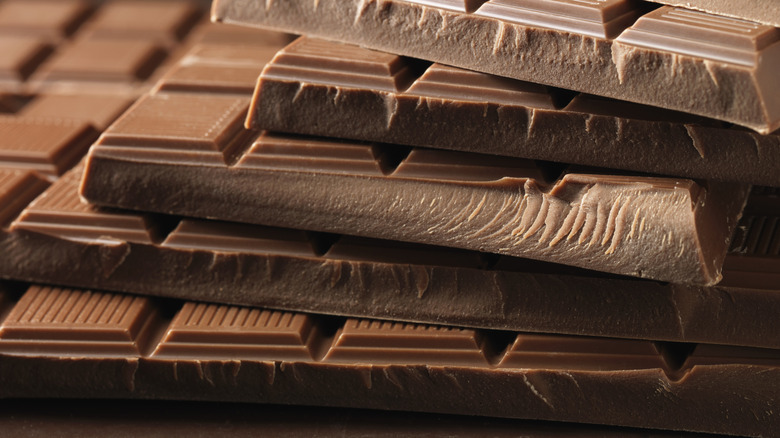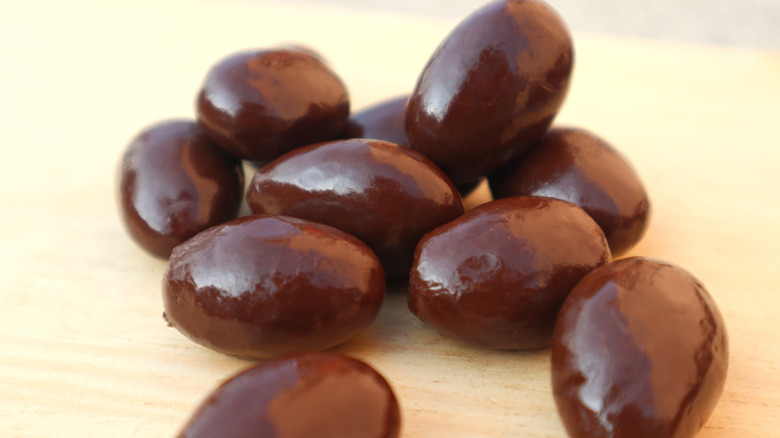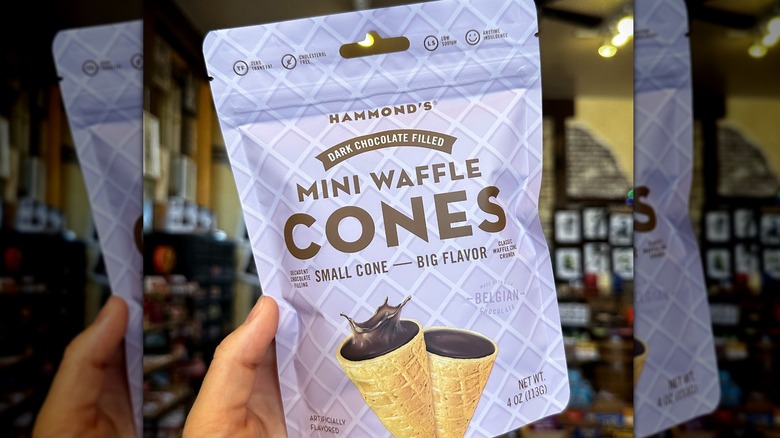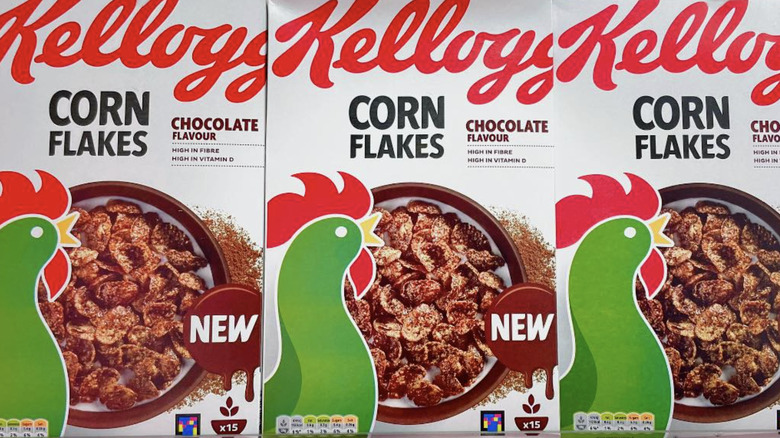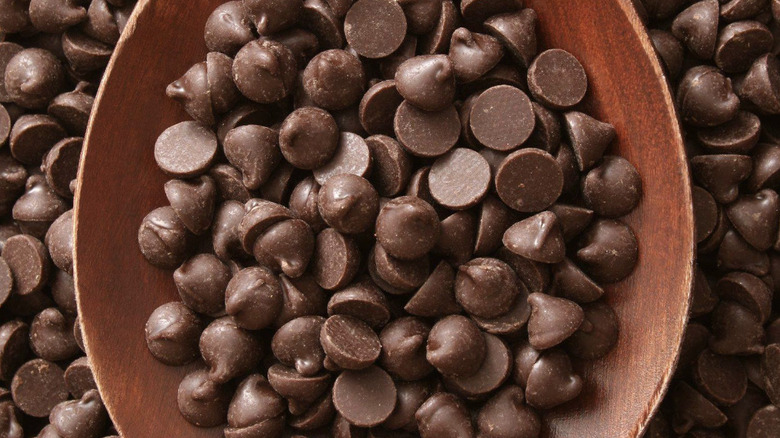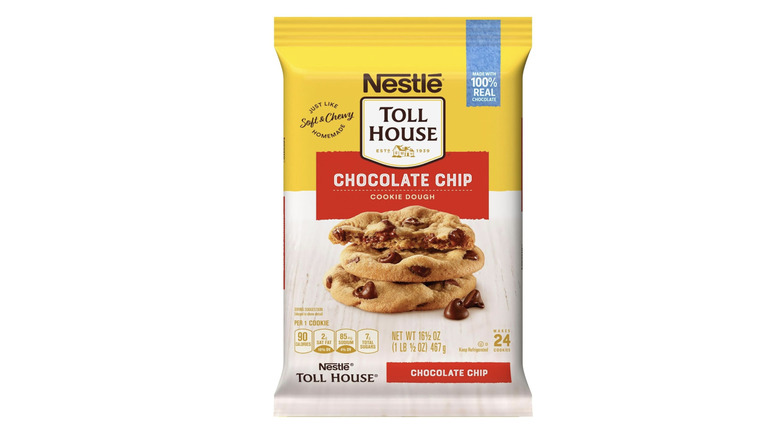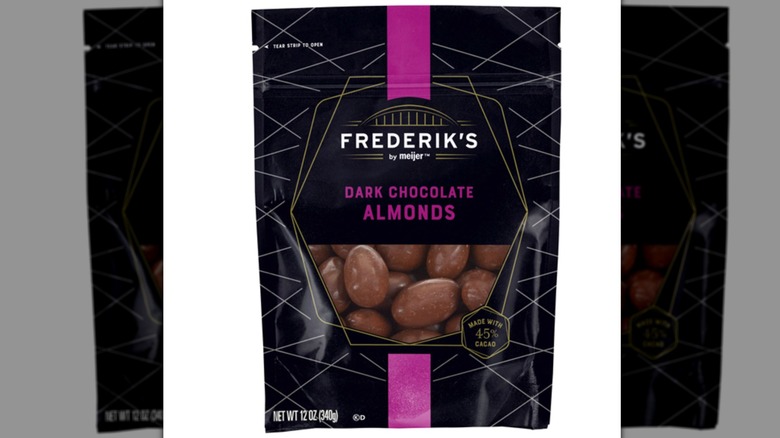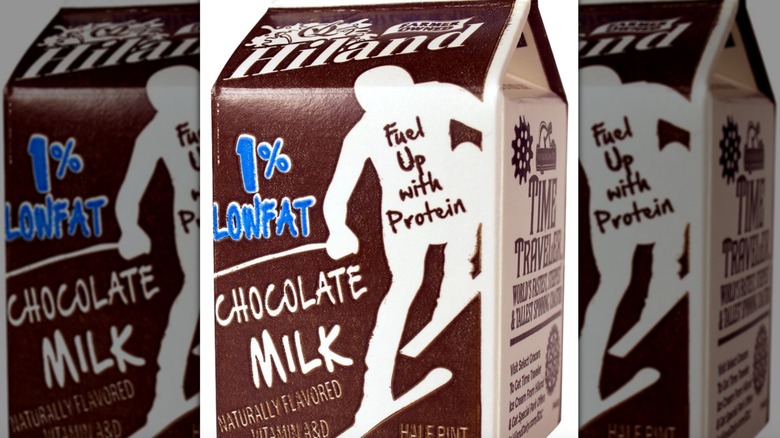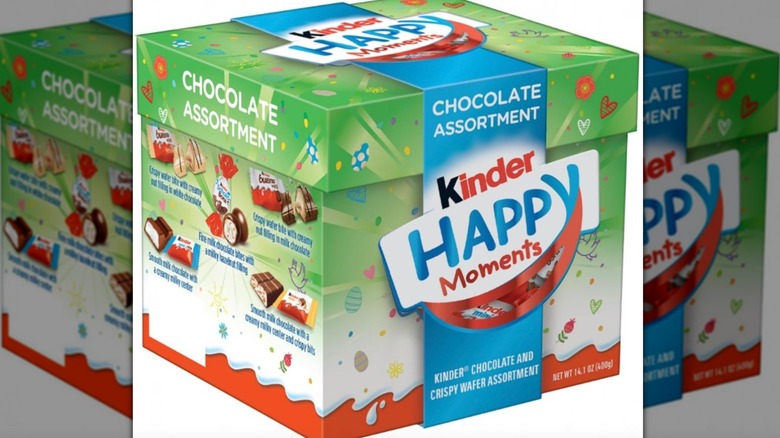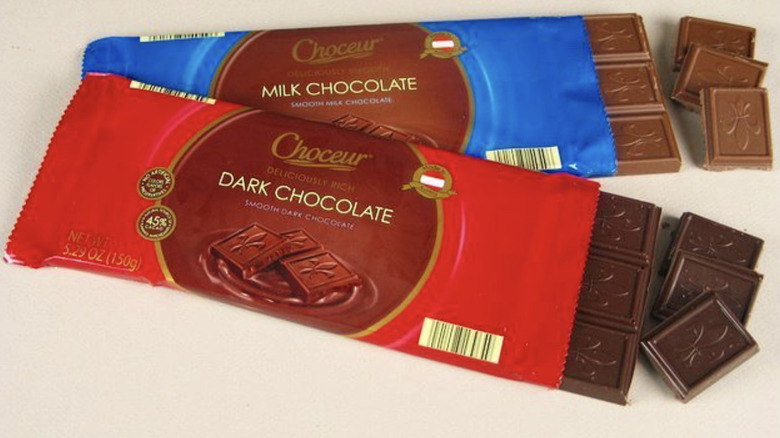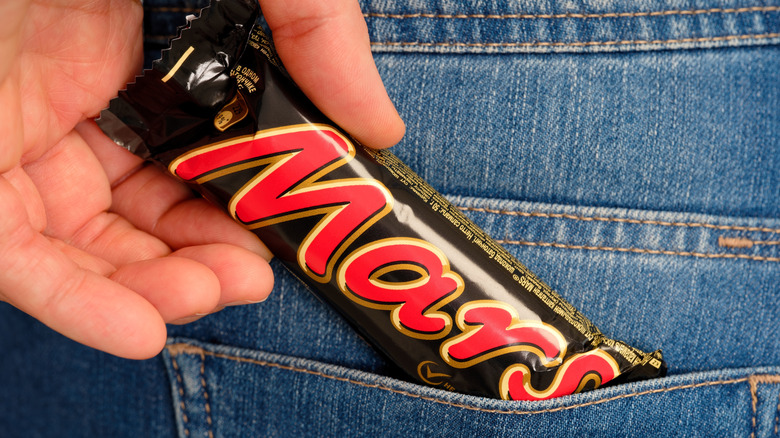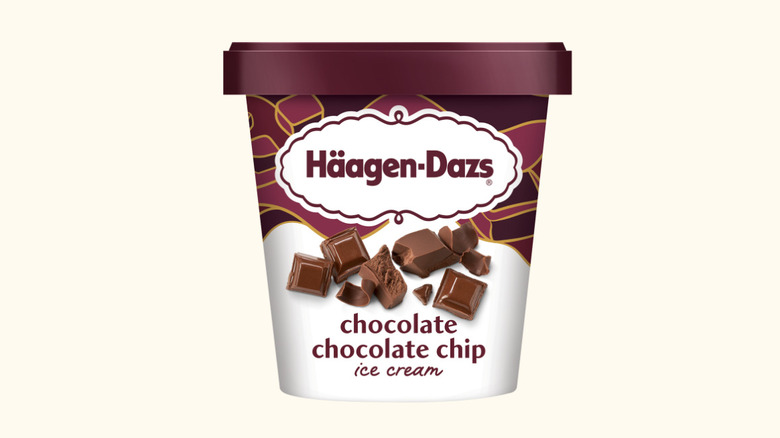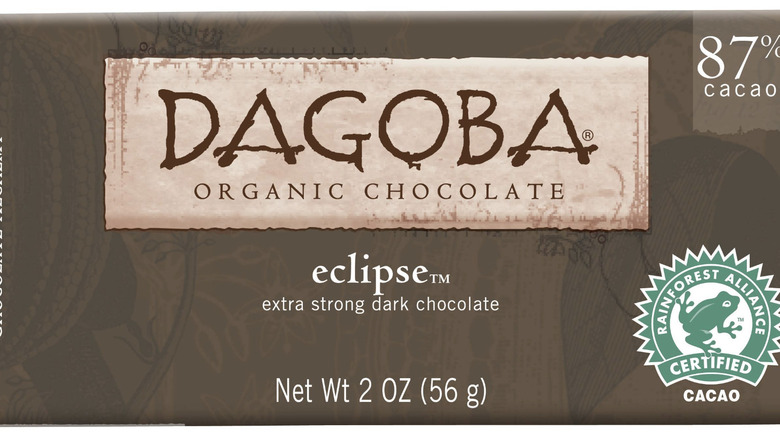Chocolate Recalls That Affected Millions
We may receive a commission on purchases made from links.
Rich in flavor and smooth, velvety in texture, chocolate is an indulgence that most of us would be reluctant to give up. Over the years, the melt-in-the-mouth treat has evolved beyond the traditional chocolate bar or chocolate cake, making an appearance in pastries and even savory dishes. As such, it's not surprising that the ubiquitous indulgence can be found on most supermarket shelves.
Most shoppers assume that the products — including chocolate — they purchase at their local grocery store undergo proper quality checks and are safe for consumption. Unfortunately, things are not always as they seem. While the U.S. Food and Drug Administration (FDA) is doing its best to control the quality of the products that hit the market, issues with product safety still exist. In fact, the number of food recalls has increased by 15% between 2020 and 2024, as reported by Traceone. In the case of chocolate, most recalls are issued due to undeclared allergens, mislabeling, and contamination.
Interested in finding out more about recent chocolate recalls that have left their mark on the industry? Take a look at our list of chocolate recalls that impacted countless consumers.
Multiple Cal Yee Farm products (2025 and 2024)
In January 2025, the FDA upgraded the recall of three Cal Yee Farm chocolate products to the highest risk level classification — Class I. The first recall notice for the products was issued by the agency in December 2024 citing misleading labeling. Cal Yee Farm began the voluntary recall of the products on 12 December across the eight states where they had been shipped. As of February 1, no illnesses had been linked to the mislabeling, but the consequences could have been dire, potentially putting countless people at risk.
The affected products included the brand's Dark Chocolate Almonds, Dark Chocolate Apricots, and Dark Chocolate Walnuts. All the products contained milk, which wasn't declared on the packaging. The FDA recognizes milk as one of its "nine major food allergens," which can lead to a whole host of health issues including hives, cramps, and loss of consciousness. Given the severity of the allergic reaction risks, it's not surprising that the FDA ended up giving the items a Class I recall classification, indicating that coming into contact with, or consuming, the chocolates could result in "serious adverse health consequences or death."
The other Cal Yee Farm chocolate products included in the 12 December recall — but not upgraded to Class 1 — contained undeclared allergens including soy, almonds, sesame, wheat, and FD&C #6 food coloring. The products containing soy and wheat were already given a Class 1 status in December.
Hammond's Candies' Dark Chocolate Filled Mini Waffle Cones (2024)
Founded in 1920, Hammond's Candies made its debut with Carl's Piggy Backs, bite-sized chocolate treats topped with shredded coconut. Over the years, the company has expanded its product range to include other sweets like candy canes, flavored marshmallows, and lollipops.
In 2024, Hammond's Candies recalled its Dark Chocolate Filled Mini Waffle Cones due to concerns about potential allergic reactions caused by the milk in the confectionery — a product that wasn't listed on the packaging. The safety recall was launched after a consumer suffered an adverse reaction after eating the mini waffles.
The chocolate-filled cones, which had been sold in 38 states, were given a Class II risk rating by the FDA, where the "use of or exposure to a violative product may cause temporary or medically reversible adverse health consequences." The chocolate waffles seem to have fallen short of a Class I level warning due their relatively small milk content. While the labeling on the confectionery's packaging stated that it was merely "packaged in a facility that processes egg, milk, mustard, peanuts, sesame, soy, sulfites, tree nuts, wheat," testing revealed that the product contained quantities of milk that exceeded trace amounts. The exact source of the contamination remains unknown.
Kellanova's Kellogg's Corn Flakes Chocolate Flavor (2024)
Kellogg is a household name that has withstood the test of time. Mainly recognized for its cereals and snack products, the brand has been feeding families since its founding in 1906. Perhaps Kellogg's most famous product, corn flakes were invented even before the company existed in 1894. The venture's long standing legacy hasn't prevented the breakfast snack company from mishaps. In fact, over the years, Kellogg's has had to deal with numerous product recalls.
In 2024, Kellanova, formerly the Kellogg Company, voluntarily recalled its Kellogg's Corn Flakes Chocolate Flavor in the U.K. due to a "quality defect." The move came after a consumer discovered hard lumps in the cereal. According to Kellanova's press release, the lumps didn't break down with milk, creating a choking risk and the potential to damage teeth. A spokesperson for the company explained the move at the time, saying, "It's important to say that the risk of injury from these hard lumps of chocolate cereal is minimal but we're not willing to compromise on quality or safety."
Multiple Clasen Quality Chocolate products (2024)
Clasen Quality Chocolate specializes in producing chocolate and coatings made from sustainably-sourced cocoa beans for manufacturers and retailers. In May 2024, the company recalled over 4 million pounds of chocolate products, which had been distributed across nine states. The recall affected 10 different milk chocolate confectionery products, including Snow White Chocolate, Milk Chocolate Flavored Confectionery Drop, and White Chocolate Wafer.
All of the chocolate products were recalled due to potential contamination with salmonella. While no further details about the cause of the contamination have been provided, the recall was given a Class II rating by the FDA, meaning that it posed a moderate health risk. None of the affected products were ever linked to any cases of salmonella, which normally cause symptoms such as abdominal cramps, diarrhea, and fever. The effects of salmonella can range from mild discomfort to severe gastrointestinal issues that require hospitalization.
Nestlé's Toll House Chocolate Chip Cookie Dough (2023 and 2009)
While Nestlé's roots can be traced back to the foundation of the Anglo-Swiss Condensed Milk Company in 1866, the company only started selling chocolate as the Nestlé & Anglo-Swiss Milk Company in the early 20th century. Today, the corporate giant's portfolio spans over 2,000 brands, including cereal, coffee, and even pet care products. Its chocolate and confectionery brands include big names like Kit Kat and Milkybar. Despite its imposing size, Nestlé hasn't escaped controversy, including instances of product recalls.
Nestlé's Toll House Chocolate Chip Cookie Dough has been hit with not just one but two separate recalls. In August 2023, the company announced a voluntary recall of the product after a number of customers found wood chips inside the dough. The recalled batches were produced on April 24 and 25, 2023. Luckily, nobody seems to have been affected by the blunder.
Significantly, Nestlé's Toll House Chocolate Chip Cookie Dough was a subject of a prior safety recall in 2009, albeit for a completely different reason — an E.coli contamination. At the time, it was reported that over 75 people in 30 states became sick after eating the product. Fortunately, no deaths were reported. While the cause of the contamination remains unknown, it's suspected that the flour in the product was the culprit behind the outbreak. At the end of the day, Nestlé recalled 3.6 million packages of the chocolate chip dough.
Two Meijer chocolate products (2023)
When Hendrik Meijer opened the doors to his first grocery store, little did he know that nine decades later the company he started would grow to 500 locations. Aside from operating as a supermarket chain, Meijer also develops its own products under a range of brand names. In 2023, the corporate giant had to recall two of its chocolate products after discovering that they might contain milk — an ingredient that was not declared on the packaging.
Both Frederik's Dark Chocolate Almonds and Meijer Express Go Cup Dark Chocolate Almonds were pulled from shelves after concerns about the allergen were raised. The recall affected products sold at Meijer and Meijer Express stores in Wisconsin, Michigan, Kentucky, Indiana, and Illinois. The grocery store chain attributed the mishap to miscommunication with its supplier, Lamontagne Chocolate Corp., about an update in one of its product specifications. No illnesses caused by the consumption of the products were reported at the time.
Two Hiland Dairy chocolate milk products (2023 and 2021)
Featuring a network of dairies and distribution centers across the Midwest, Hiland Dairy supplies consumers with a range of dairy products, from creamy butters and cheeses to coffee creamers and ice cream. These offerings also include unflavored and flavored milk. Unfortunately, in 2021, Hiland Dairy found itself in hot water after its 1% Low Fat Chocolate Milk was found to contain food-grade sanitizers.
The recall of 240,000 ½ pint cartons of the chocolate milk units affected Texas and Oklahoma. In a press release issued by Hiland Dairy at the time, the company stated that the contamination was caused by "an employee not adhering to [company] protocols." The milk was exposed to an Ecolab product called Synergex, a no-rinse antimicrobial used to clean dairy processing equipment.
Shockingly, Hiland Dairy committed the same blunder in 2023. At the beginning of the year, the company voluntarily recalled over 300,000 cartons of Hiland Fat Free Chocolate Milk Vitamin A&D Naturally Flavored Half Pint due to the potential presence of food-grade sanitizer.
Multiple Ferrero chocolate products (2022)
Owned by the third generation of the Ferrero family, Ferrero was founded in 1946 in Alba, Italy, as a small pastry shop. Close to eight decades later, the company is the name behind popular brands like Kinder, Ferrero Rocher, Nutella, and Tic Tac, which are sold in over 170 countries.
Even for successful conglomerates like the Ferrero Group, things don't always go according to plan. In April 2022, Ferrero had to remove two of its chocolate products from the stores. Both Kinder Happy Moments Chocolate Assortment and Kinder Mix Chocolate Treats Basket were found to be contaminated with salmonella. The harmful organism can cause abdominal pain, vomiting, diarrhea, and in the most severe cases even death. The recall was expanded the following month to include other Ferrero chocolate products, including Kinder Surprise and Kinder Mini Eggs.
The confectionery was voluntarily recalled after salmonella was found at the Arlon production site in Belgium where they were manufactured. While no cases of the illness were detected in the U.S., this wasn't the case in Europe, where consumers who had eaten products manufactured at the same site had contracted salmonella.
Multiple See's Candies chocolate products recall by Thompson Candy Company (2021)
One of America's first chocolate companies, the story of Thompson chocolates dates back to 1879, when William H. Thompson opened his first confectionery store. In 1934, Thompson's son, Charles, rebranded the business as the Thompson Candy Company, focusing on hand-molded chocolate products. The chocolate company has grown from strength to strength and today produces over 2 million pounds of chocolate per year.
In 2021, Thompson's initiated a voluntary recall of See's Candies, including the chocolate sitting bunny and gold foil balls. While the connection between the two chocolate producers isn't clear, we can only assume that Thompson may have been a supplier or manufacturer for See's Candies at the time. Very little detail is publicly available about the incident, however, we do know that the Thompson Candy Company recalled 50,000 pounds of chocolate due to concerns about potential contamination with salmonella, a type of bacteria that can lead to severe food poisoning.
Aldi's Choceur Dark Chocolate Bar (2017)
Founded in Germany in 1961, Aldi is known for its low prices, no-frills shopping, and brand products. The grocery store opened its first U.S. location in Iowa in 1976 and since then has expanded its footprint to almost 2,500 outlets around the country. Among Aldi's countless private brands is Choceur, a chocolate line that offers a range of confectionery, including assorted Belgian chocolates, chocolate eggs, and chocolate-coated nuts.
One of Aldi's sweets is the Choceur Dark Chocolate Bar, a confection the company voluntarily pulled off the shelves back in 2017. The recall was initiated after an Aldi employee found small fragments of almonds in the chocolate. Since the nuts weren't listed on the packaging, the discovery created a potential concern for those with allergies. At that stage, Aldi's Choceur Dark Chocolate Bar had already been distributed to stores across 25 states. As of 29 December, 2017, no consumers had been adversely affected due to eating the product.
Multiple Mars chocolate products (2016)
Blending chocolate, caramel, and nougat, Mars Chocolate Bars were invented in 1932 in Slough, England. While the first Mars bars were handmade, today the company relies on automated machinery to make close to three million Mars bars per day. While the chocolate bars may be its most famous offering, Mars, Incorporated is also the mastermind behind a range of other popular chocolate products, including Snickers, Milky Way, and Twix.
In 2016, Mars, Incorporated made the decision to recall some of its chocolate products in 55 countries — a move that likely set the company back tens of millions of dollars. The recall took place after a consumer in Germany discovered a piece of plastic in their Snickers bar. Upon further investigation, it was determined that the offending piece of plastic came from a factory in Veghel, Holland, where it must have broken off from a protective casing during the manufacturing process.
The goods in question included the brand's most famous offerings like Snickers, Mars, and Milky Way, as well as lesser known confectionery like Celebrations and Mini Mix. A spokeswoman for Mars Netherlands explained the scale of the recall in an interview with The Guardian, saying, "We cannot be sure that this plastic was only in that particular Snickers. We do not want any products on the market that may not meet our quality requirements, so we decided to take them all back."
Nestlé's Häagen-Dazs Chocolate Chocolate Chip Ice Cream (2014)
Häagen-Dazs may sound Scandinavian, but the ice cream's name means absolutely nothing. In fact, it was invented by one of the brand's founders — a Polish immigrant in New York, Reuben Mattus. Like many other big name brands, Häagen-Dazs is no longer overseen by its original owners. Instead, it has fallen into the hands of conglomerates, which, as it turns out, can still make potentially disastrous mistakes.
Unlike many other food products that are recalled due to ingredient mishaps, Nestlé pulled Häagen-Dazs Chocolate Chocolate Chip Ice Cream off the shelves in 2014 due to a completely different type of issue — mismatched packaging. More specifically, the product was recalled after it was discovered that the 14-ounce cartons labeled Häagen-Dazs Chocolate Chocolate Chip were filled with Häagen-Dazs Chocolate Peanut Butter. It goes without saying that the labeling on the package didn't identify one of the major allergens found in the ice cream — peanuts. The seriousness of the blunder was readily apparent as it could have led to life-threatening consequences for individuals with peanut allergies.
Multiple Dagoba organic chocolate products (2006)
When Dagoba was founded in 2001, it was all about crafting high-quality, organic chocolate with a focus on sustainability and ethically sourced ingredients. The chocolatier was purchased by The Hershey Company in 2006 — the same year Dagoba issued a recall of its organic chocolate products. As far as we know, the two events were unrelated.
Dagoba took six of its dark chocolate products off the market after discovering that they were contaminated with high levels of lead. Reportedly, this amounted to 40,000 pounds of chocolate, or close to 5% of the company's 2005 production. The chocolate products, which were sold nationally, posed a serious health risk to consumers. Ingesting lead can result in a range of health problems, from muscular weakness to neurological damage. Consuming the substance can be particularly dangerous for pregnant women and children, as it can cause developmental delays and even damage to the central nervous system. While no specific illnesses were reported in connection to the recalled products, the real extent of the lead exposure may never be known.
